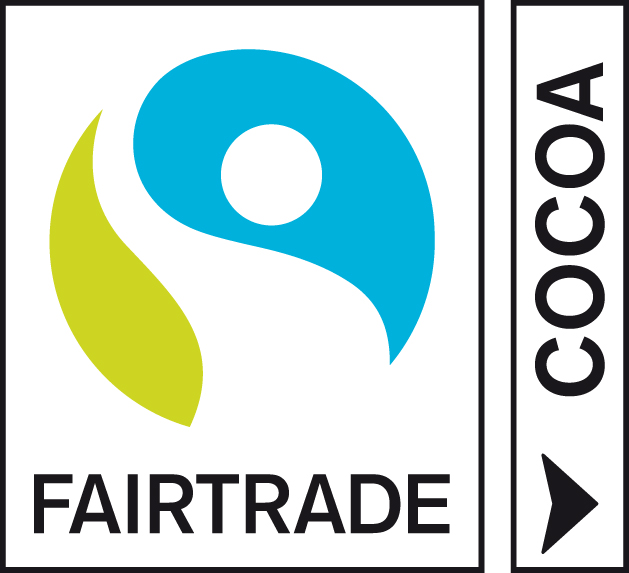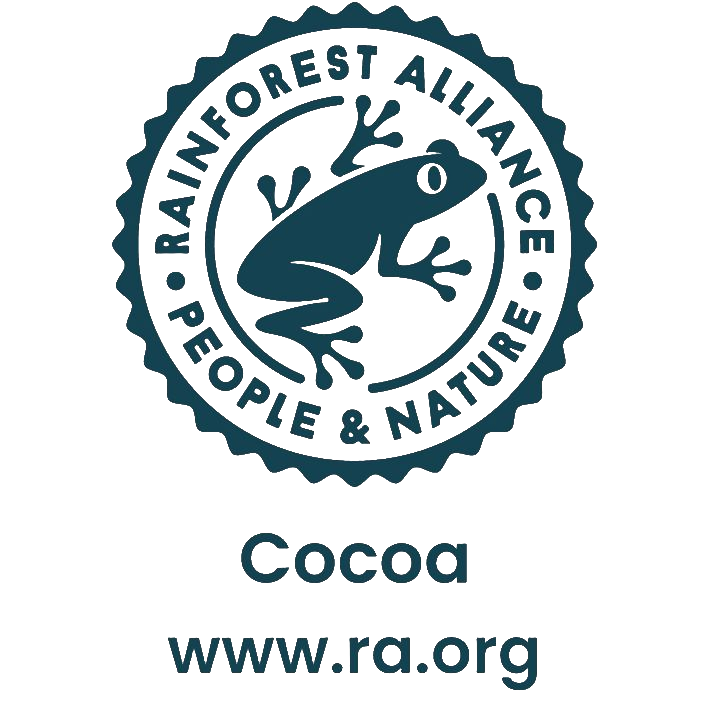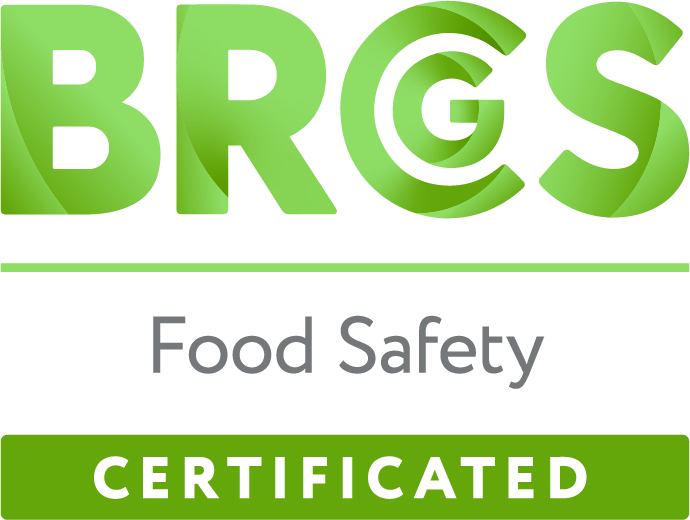Sustainability and ethics
As a chocolate company, we take responsibility not only for the quality of our products, but also for our impact on the planet. We are committed to reducing our ecological footprint and continuously work on sustainable improvements, both within our production sites and beyond. Discover how we integrate sustainability into every step of our process, so we can continue crafting delicious and honest chocolate with respect for people and the environment.

Our ecological footprint
At Hamlet, we are committed to a sustainable future with respect for the environment and for generations to come. That’s why we actively invest in eco-friendly solutions throughout all our processes. We reduce packaging, choose recyclable materials, and lower our CO₂ emissions through an environmentally conscious vehicle fleet and energy-efficient production. Solar panels, heat recovery systems, closed cooling circuits, and motion-sensor lighting help us use energy efficiently. Rainwater is reused, and waste streams are carefully separated to maximize recycling. For Hamlet, sustainability isn’t a choice, it’s a given.

Fairtrade certified
Cocoa farmers deserve a future where they can take control of their lives, yet many still live in poverty, facing serious issues like child labor and deforestation. Fairtrade provides a powerful solution by guaranteeing fair minimum prices and protecting farmers from market fluctuations. Additionally, the Fairtrade premium enables farmer organizations to invest in community projects, sustainable farming, and improved infrastructure. Hamlet supports this mission by consciously choosing Fairtrade cocoa, helping to fight poverty, strengthen farmers’ livelihoods, and protect the environment for a sustainable and just future.

Rainforest Alliance certified
Rainforest Alliance Certified stands for more sustainable farming practices and better opportunities for farmers, their families and our planet. The Rainforest Alliance program helps to enable farmers to learn better farming methods, improve working conditions and take care of the environment. The Rainforest Alliance program also helps farmers grow their crops more sustainably, generate more income and create better opportunities while also helping to protect the environment. And that tastes a lot better.

RSPO certified
Thanks to our RSPO certification (Roundtable on Sustainable Palm Oil, Hamlet license number RSPO-1106209) we are able to offer you products made with sustainable palm (kernel) oil at Hamlet. With this, we contribute to minimising the negative impact of palm (kernel) oil on the environment and living conditions, so that future generations can continue to enjoy our delicious products. Follow our progress at www.rspo.org.

FSC certified
Our commitment to a more sustainable product also extends to our packaging choices. For paper and cardboard, we prioritize FSC-labeled materials sourced from responsibly managed forests. We collaborate with partners who share our sustainable vision and uphold the same high standards for food safety and recyclability. The FSC label represents an environmentally friendly and socially responsible approach to forest management worldwide.

Beyond Chocolate
Hamlet is proud to be part of Beyond Chocolate: Belgium’s initiative for sustainable chocolate. As a dedicated partner, we actively contribute to building a fair and environmentally responsible chocolate sector. This includes supporting living incomes for cocoa farmers, preventing deforestation, and promoting transparent, sustainable supply chains. With Beyond Chocolate, we consciously choose chocolate with a future.

SBTi (Science Based Targets initiative)
Hamlet is committed to setting near-term, science-based emission reduction targets in line with the SBTi criteria and the 1.5°C pathway of the Paris Agreement. As part of this commitment, we are mapping our environmental impact by calculating the carbon footprint across our entire value chain in detail. This allows us to take responsibility for the impact of our activities on both people and the planet. Once this impact is fully understood, we implement targeted measures to minimize it and manage it sustainably within an integrated management system.

ETI (Ethical Trading Initiative)
At Hamlet, we operate according to the principles of the ETI code, committing ourselves to fair labor practices and respect for human rights throughout our entire supply chain. View our Code of Conduct. Read the OECD Due Diligence Guidance for Responsible Business Conduct.
Certificaten
In a constantly changing world, it is essential for Hamlet to consistently meet the highest standards. That’s why Hamlet and its production sites hold all key certifications.

IFS (International Food Standard)
As a distribution company, Hamlet holds the IFS Broker certification, demonstrating our compliance with the highest standards for safety and quality in our trading activities. Our production sites operate under the strict requirements of the IFS Food Standard, meeting all legal regulations and the highest customer quality expectations. This ensures that food safety and quality are carefully monitored at every stage of the production process, with transparency and reliability as fundamental principles.

HACCP (Hazard Analysis and Critical Control Points)
Food safety is our top priority at Hamlet. That’s why we implement the HACCP system to ensure all our products meet the highest standards of safety and quality. By identifying and controlling risks at every stage of the production and supply chain, we guarantee our customers safe, reliable, and flavorful products every time. For us, HACCP is not just a standard, it’s a commitment to the health and satisfaction of our consumers.

BRCGS (Brand Reputation Compliance Global Standards)
Our production sites comply with the BRC Food Safety Standard, which is based on the HACCP principles. This standard sets additional requirements across various areas, including senior management involvement, the development of a food safety plan, production facilities, product control, process control, and personnel management. Thanks to the certification of our own production sites, we are able to consistently guarantee the highest quality standards every day.

Traceability
We ensure that all our products are fully traceable. From the moment ingredients are received until final delivery, every step of the production process is carefully monitored. We regularly conduct laboratory tests to guarantee the quality of our products. Additionally, Hamlet performs periodic safety and quality audits to ensure we consistently meet our strict standards.
No results found. Try again with a different searchtem.
